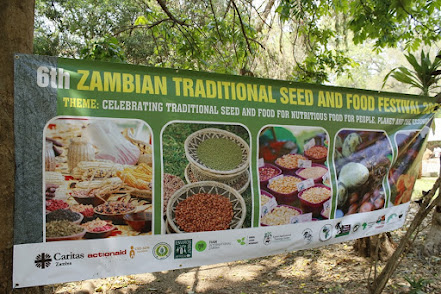LACK OF ACCESS TO LOANS BY FARMERS, A BARRIER TO MECHANIZATION
Unlike in the past when farming was merely perceived as source of food at various levels, be it household or national levels, farming is now viewed as a business venture, meaning that it now serves as an Income Generating Activity or a source of revenue.
Through farming, many people today are able to raise money to finance their daily needs such as meeting their medical costs and their children’s education.
Just like any other business person, a farmer equally needs to diversify their offer lineup. A farmer must therefore focus on what can complement his or her traditional product (Maize). In this case they need to cultivate a variety of crops ranging from Millet, Sorghum to Groundnuts among others, which also offer great revenue prospects other than relying only on maize production because it is susceptible to drought and cannot generally withstand the current climatic condition.
Like any other business which requires the owner to inject some form of investment for it to thrive, modern farming requires some type of investment that could help reduce labour intensive while at the same time assisting farmers to maximize their production.
A lot of farmers today are unable to boost their production. There are numbers of factors leading to that and one of them is failure to mechanize their farming.
Due to lack of equipment such as tractors, water pumps (for irrigation purposes) to mention but a few farmers’ capacity to produce more is limited.
“Lack of access to loans from the banking and other lending institutions is hindering us, farmers from mechanizing our farming,” Secretary for Kalimina Multi Purpose Cooperative Society which is under Kafue District Union Cooperative, Mike Tembo complained.
He revealed that nearly all banking institutions require them to have collateral before they can be allowed to access loans which most of them lack.
Mr. Tembo stressed that “due to financial constraints most us are unable to buy farming equipment to enable us mechanize our farming which could enhance our production capacity.”
He said this during a Government and Business institutions linkages and collaboration lobby meeting aimed at providing a platform for farmers to discuss the challenges they face.
He further observed that despite gaining knowledge on the importance of diversifying their farming, “insufficient amount of rainfall has lead to most of our field drying up. We do not have water pumps to irrigate our farms, this is really impacting negatively on our farming activities. We are even failing to diversify our crops.”
And Hivos Southern Africa Regional Advocacy Manager for Sustainable Foods William Chilufya has expressed worry that malnutrition in form of overweight and Obesity is becoming prevalent in the country.
Mr. Chilufya regrets that a lot of people are dying as a result of Non-Communicable Disease (NCDs) citing over-weight than ever before.
“If we got a blood Pressure machine we could find that half of us here we deserve to be on medication because of high blood pressure. So the status quo does not make us [HIVOs]happy. Our findings have revealed that Zambia is in this place due to mono-cropping [dependence on maize] culture. We love to grow Maize because everything is in place to support maize cultivation and love eating maize because it is readily available but without realizing that maize does not contain the entire nutrient that the human body requires and this why we came up with the program which is focusing on ending the idea of mono-cropping by promoting crop diversity,” He said.
“We are working with the Zambia Alliance of Women because women play a significant role when we talk about crop diversification.
This is because the food that we mostly eat is prepared by women. As HIVOS we are committed to ensuring that women are highly recognized in food system of this country.”
Meanwhile the Zambia Alliance of Women (ZAW) has urged the government to address the challenges that prevent women from engaging in sustainable Agricultural practices.
Organisation Executive Director, Edah Chimya observed that failure to look into the plight of farmers has the potential to negatively affect their agriculture production, a development she said could in turn lead to food insecurity at household level.
“We have been taking our farmers especially women to demo fields. We have been training them in conservation farming, crop diversification and other good agriculture practices while providing some extension services in our quest to empower them with vast knowledge especially with the issues of climate change, so basically our engagement with farmers is more pragmatic than theory,” she explained.
Mrs.Chimya also pointed out the need for government to ensure that farmers, women in particular are also given easy access to extension services especially for their livestock.
ENDS.///


Comments
Post a Comment